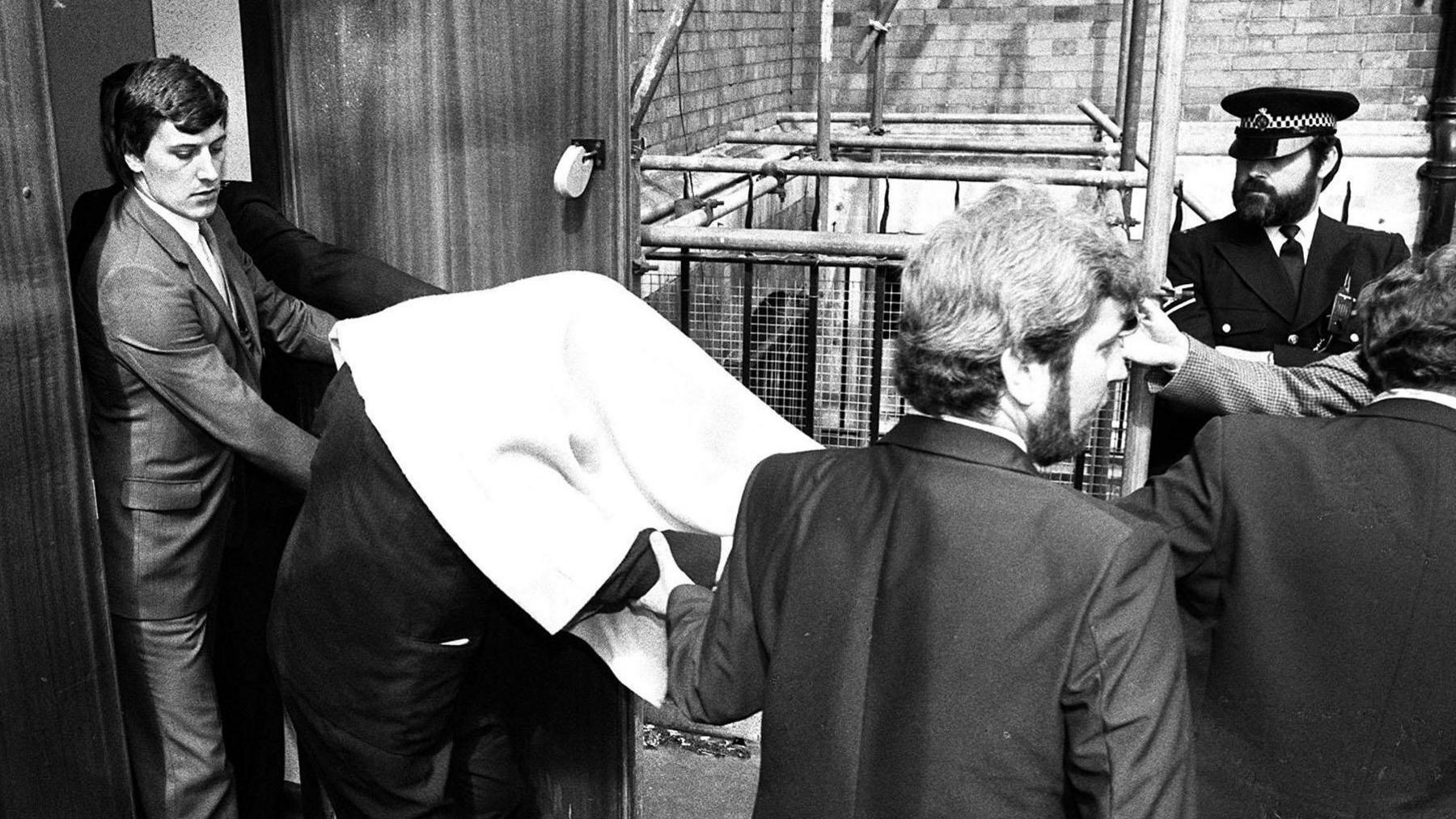Watchdog urges better checks after prisoner death

Phillip Sheridan, was serving life at HMP Full Sutton, near Pocklington, East Yorkshire
- Published
A prison has made changes following the death of a man serving a life sentence.
Phillip Sheridan was jailed in 1987 for attempted rape, robbery, and other offences. He died at HMP Full Sutton, East Yorkshire, of a heart attack on 21 July at the age of 70.
Prison officers had been carrying out hourly checks on Sheridan, who had several health conditions and expressed a wish to die, but their view of him was partially blocked by a cabinet in the hours before his death.
A report by the Prisons Ombudsman said cabinets had since been removed from relevant areas. It recommended the governor should ensure staff adequately assessed a prisoner's welfare during suicide and self-harm prevention checks.
During his time in prison, Sheridan was diagnosed with diabetes, asthma, mobility issues, acute schizophrenia, and paranoia associated with personality disorder.
The ombudsman's review noted Sheridan did not comply with treatment. In July, he refused to take insulin and said he wanted to die.
Staff were advised to carry out suicide and self-harm prevention procedures, known as ACCT checks, hourly.
On 20 July, an officer noted that Sheridan was asleep all night, but said it was difficult to see him because a cabinet partially obstructed the view.
When an officer went to give Sheridan his breakfast on 21 July, they discovered he was not breathing. Paramedics confirmed his death at 10.30 BST.
Respect and compassion
A clinical reviewer concluded that Sheridan's healthcare was equivalent to that he could have expected to receive in the community.
While his behaviour was sometimes challenging, healthcare staff treated him with respect and compassion.
There was sufficient evidence that Sheridan had capacity to refuse treatment, but the clinical reviewer noted there should be a more robust process in place for ongoing discussions about consent and the consequences of not being treated.
The ombudsman made recommendations around ensuring a refusal of care pathway is in place, in order to support practitioners caring for patients who refuse treatment.
HMP Full Sutton accepted the recommendations. It said it had circulated guidance to staff around ACCT, including what to do when checks were hindered by a prisoner or other factors.
In addition, the prison said it would escalate cases of self-neglect regionally if needed.
Listen to highlights from Hull and East Yorkshire on BBC Sounds, watch the latest episode of Look North or tell us about a story you think we should be covering here, external.
Download the BBC News app from the App Store, external for iPhone and iPad or Google Play, external for Android devices
Related topics
- Published13 September 2024

- Published1 June 2023
